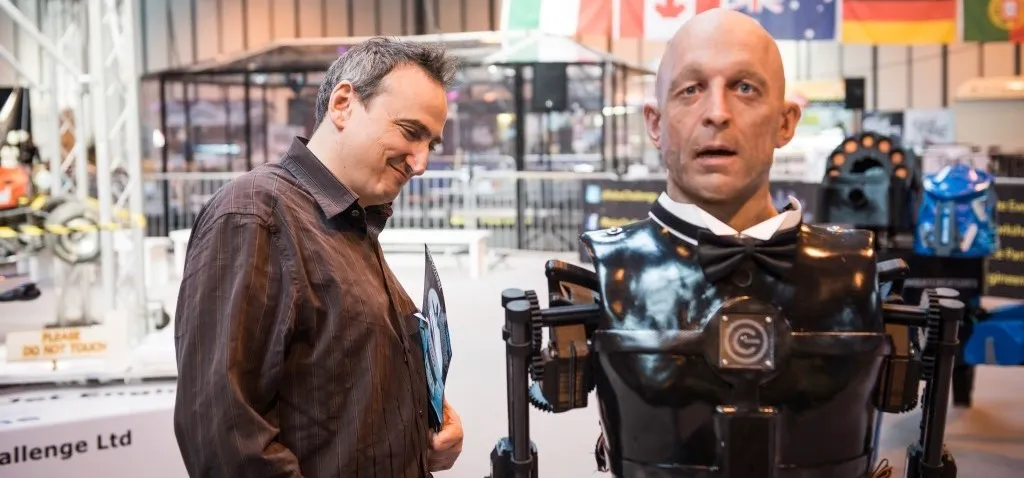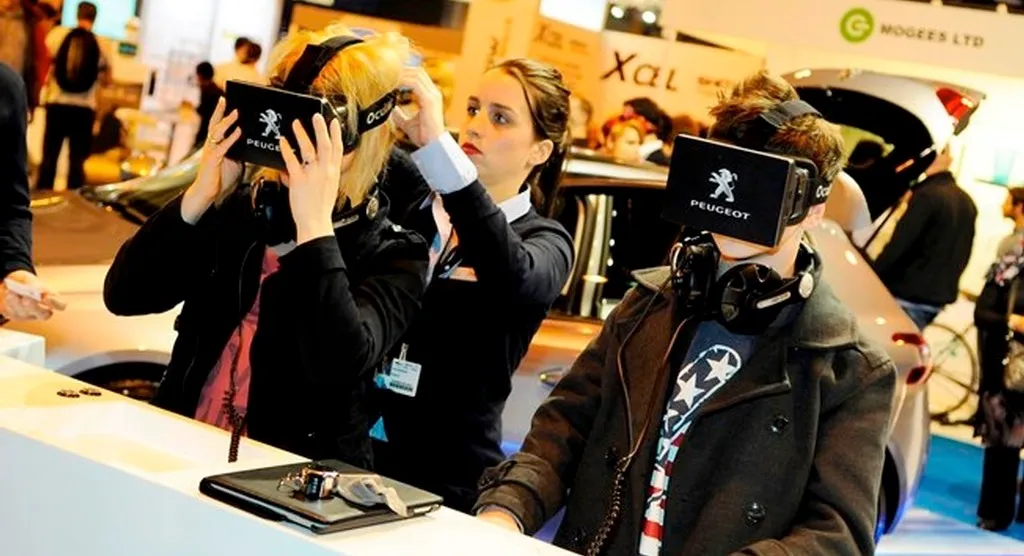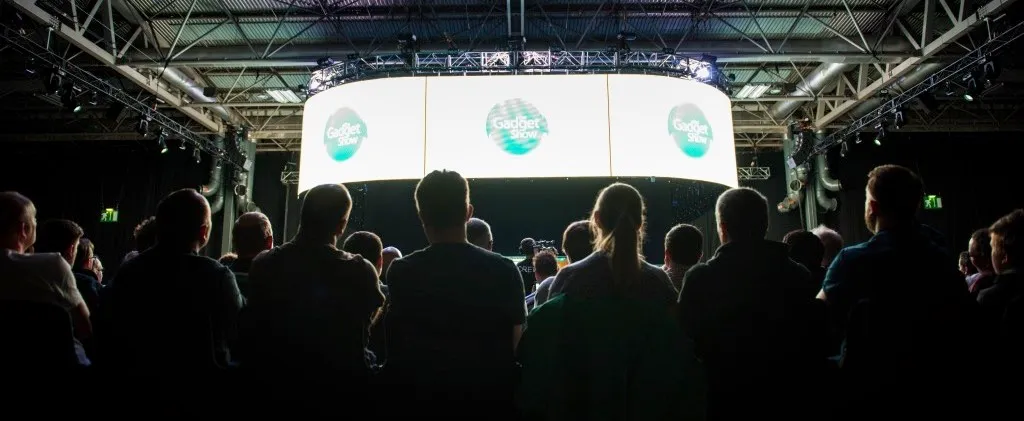This year at the Gadget Show Live you are presenting the award for the British Inventors’ Project - are we a nation of good inventors?
Absolutely. We talk about London being the financial capital of Europe, but it is also the creative and design capital as well. So many startups happen there, world-class innovators likeAppleget British designers and that's the future of our country. That's why theBritish Inventors’ Projectis so important. It is our ideas base and the ability to think outside the box that I think is going to give the United Kingdom its industry in the future.
What do you think of this year’s shortlist?
It's good. There's one called theeFoldicase, which folds into a drivable tricycle, which is cool because if you're an elderly person who needs to carry a case or chair, then getting them onto a plane or a bus is a real pain in the backside. If you lack mobility or are a silver surfer, the world of mobility is often overlooked and I think this is a really nice entry. I mean we're all getting older and the population is about to go through a big demographic shift and I think we'll be seeing a lot more like this in the future.
Another entry I really like is theOhyo- it's a really interesting concept. It’s a bag that changes shape depending on what you put in it, it's really nice.
I like Bikedeck as well as it's an interesting take on bike storage and transportation. It's like a rack with wheels on it, which you collapse your bike onto, secure it to the rails and then cover.It makes that problem you have of taking your bike around and about, on and off transport really easy.
I'm also a fan ofVRGO. I've used it and it's a really simple way of moving through virtual space. If you usevirtual reality headsetslike the PlayStation VR or HTC Vive you either have to wear a cumbersome glove on your hand or sit next to a computer - moving around in a virtual space is actually very difficult. Something like VRGO is really easy. You sit on it and if you lean forward your character moves forward in the virtual world. So while it doesn't seem to emulate walking, in a way we are neurologically plastic, we can make abstract things seem irrelevant. For example you use cursor keys to move forward playing games on a computer keyboard and yet you still feel like in the special forces! On VRGO you can map your all your movements, like crab-walking or spinning around, so you can really have a precise way off moving through a virtual space.

Speaking of virtual reality, what do you think is going to really spark the adoption of VR?
Something likePlayStation VR. It's connected to a powerful console with an open approach to gaming and a strong track record. The software is more likely to be designed for mass-consumers, more playable and gamified than the openness of say, the Oculus Rift or HTC Vive. They are both great but actually a little bit fidgety if you want to get them up and working. But Google Cardboard is also pretty damn good in terms of a low barrier to entry.
With HTC Vive and Oculus Rift being so expensive, will VR be for hardcore gamers until the next stage of cheaper devices?
Yes, but we still need software and a really compelling reason to play VR games. If Killzone came out on the PS4 I wouldn't care how much it costs, I’d just have to play it. It's like Microsoft’sHoloLensis getting so much interest because you can play Minecraft on it. It's all about the software.
What about augmented reality, realistically are we going to see more of that?
Yep, I think AR is genuinely useful because it’s an addition to our normal lives and I think that's where layers of notification will come from in the future, rather than a smartwatch or a wearable. It'll be augmented layer. What device will give that to us, whether it is some form of retinal projection or whatever, is more difficult to imagine. It may well be a solution that we're not yet envisioning.
In the way that if you asked one of Roger Bannister's contemporaries what playlist he thought he'd be running with in the future he'd saywhat are you talking about?.Music then was hardly recorded, only for a minority of people on vinyl and he would not have been able to envisage a streaming digital music service - or even headphone for that matter. Much less Spotify, with a playlist that matches your running rhythm. I meanwhat? In the same way we might not be seeing the obvious yet.
But what I am absolutely predicting is that within ten years we will have a robust augmentation of our natural environment using digital assets, that show you where you're supposed to go, adverts, or biological data in the way fitness bands do now.
So we’re not going to look like the Lawnmower Man then?
I think that was the worst thing that ever happened to VR before it even happened. It was so disappointing. Luckily we have already surpassedThe Lawnmower Manin the realisation ofvirtual reality- we’re way beyond. Beyond it in a way that if you think about it, augmented reality has already surpassed Minority Report in may ways. If you watch the film now, you have to ask why would you bother wearing the gloves? You don't need them, just move your hands in front of an optical array and you can interact with digital assets there and then. You could even beam it straight into your eyes, you won't need a glass screen to show anything at all. They did have time travel over us though…

Is there something out there that you think ‘oh wow, this is going to be big' but is under the radar at the moment?
I think what's happening below the radar is the huge strides we’re making in the ability for computers to provide us with code, which means we can become the orchestrators, the creatives and imagineers of whatever coding problem we want solved. Computers will ultimately do the graft.
Do you think getting kids involved in tech at an early age is important?
Oh massively important, but I think teaching coding for kids is a pointless endeavour, especially for kids under the age of 10. What we should be teaching them now is how to be more imaginative and more capable of abstract thought, rather than making miniature walking, talking computers. That’s what we've always been really good at, especially in this country and it is what defines us as a species over computers.
My kids will reach a point in time when they don't need to code. What they need to do is think of really interesting solutions to really interesting problems.SAM Labs, a modular electronics kit and app that helps you build smart inventions, is a perfectly concrete example of what I’m talking about. The idea of using a light sensor to hack a Nerf gun to make a laser tripwire sentry like I did with my kids the other day - that's a truly human idea and that's where we need to put our resources.
What technology do you think has disappointed?
Wearables - if you actually stop and look at them you'll notice that the whole market has stagnated. I mean do you really want an Apple Watch? Are you bothered about anything that it does? I'm bothered about what some third-party hacker might come up with for some cool game where a fictional character sends text messages to my wristwatch, like in the gameLifeline.
I like the idea of alternate reality gaming, where games start to feel as if they are real, so you get something like a post card through the letterbox. But apart from using your Apple Watch for games it does nothing of any value.
Despite all the data that wearables tell us, like my REM sleep pattern or paces done, it’s just an algorithm.
Your watch can't tell you how many actual calories you have consumed and until it can, until there is some more sophisticated, in-depth sensor within a wearable, we're not going to get anything more interesting than vague predictions about our fitness. That’s not enough for me.
The first wearable device is effectively the same as the last wearable device; they all do the same thing because they only have the same data to play with. But if you swallow a Bluetooth connected pill that measures the actual amount of oxygen in each blood cell, or based on your core body temperature make predictions about the likelihood you have flu, we're not going to get anywhere. We need more sensors, more than just accelerometers, to provide us with actual useable data. The novelty is over; for it to improve we need actual steps in real technology.
Don't get me wrong, I am quite partial to the Apple Watch, but taking the iPad Pro for example, it actually answers a question in my life - how can I make my portable video screen bigger? The bigger the better for my iPad because I use it as my primary source of video content and I watch about two hours of YouTube every day. I absolutely love the iPad as I don't watch television anymore, so for me it makes a lot of sense. The Apple Watch has no standout feature except that as a cyclist I go off for hours in the countryside. It would be nice to have a conversation with someone via my smartphone in relatively safety.

This year you’re hosting the 8th Gadget Show Live, did you ever expect it to get so big?
No, bonkers isn't it? Absolutely mad! I thought we'd run out of stuff to talk about and review but this year it is more interactive than ever before with more things for you to try, like test tracks and flying drones. It’s way more hands-on. We’re also filming the Gadget Show Live Super Theatre for the first time this year and making it part of an episode, so people in the audience can expect to see themselves on the Gadget Show.
Can we expect any surprises?
Well there is loads and loads of virtual reality there, and the gaming zone is pretty spectacular. Hopefully we’ll have a few YouTubers because we've invited some of them to come along, and it's nice for me to get into fanboi mode and meet some of the faces that in recent years have become quite a big part of our lives. It's quite exciting!
Is there one standout thing that has impressed you?
The British Inventors’ Project - how much it has grown and the quality of the entrants, it’s incredible.
Is there anything that has really surprised you as to how well it's done since the first show?
I suppose drone technology.Droneshave just expanded so much, diversified so much and have become so acceptable.
You know I love the idea of things likeAirDog, a drone that follows you around. Being able to go out on my bike for a run through the forest and have a drone following me, that would just be awesome. I'm not naive to the challenges therein, like collision avoidance, but it looks like many of them are being met. I find that really interesting in that you can have a kind of friend that will film you and never get tired so that I don't have to buy them a coffee. It’s just a brilliant idea.
If you measure the evolution of drone technology from the relatively cheap miniature helicopters that were all the rage at the firstGadget Show Liveto now full-scale 4K, GPS-stabilized film platforms, it’s remarkable.
The Gadget Show Liveruns from 31 March – 3 April 2016 at the NEC Birmingham. Be sure to come visit the BBC Focus magazine stall at the exhibition.
Follow Science Focus onTwitter,Facebook, Instagramand Flipboard